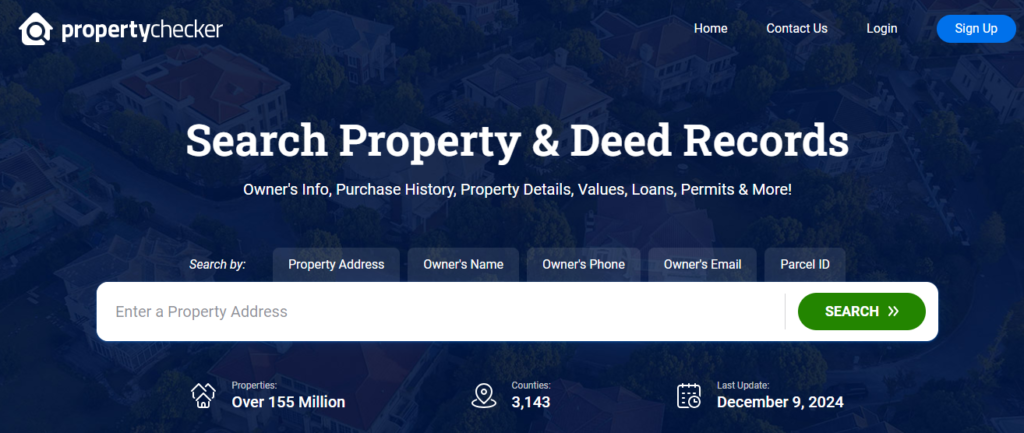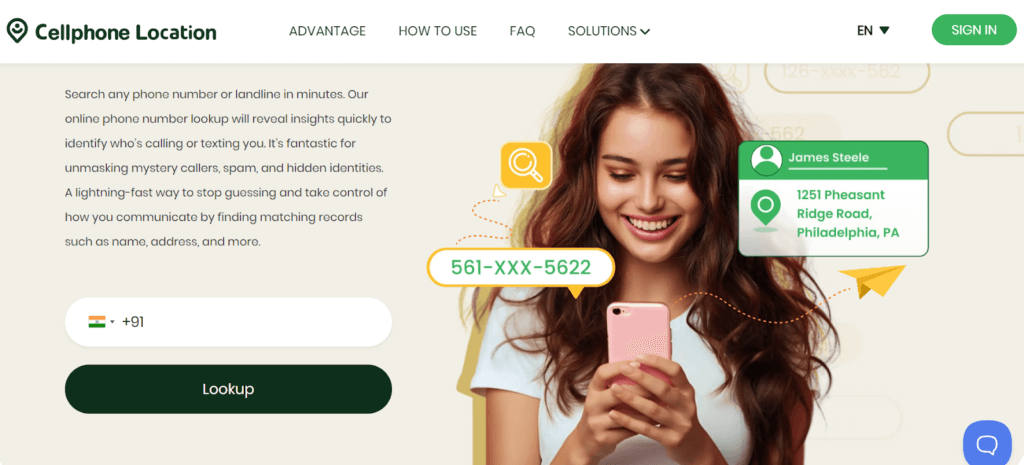Do you need to find out who owns a property? No doubt, uncovering property ownership details isn’t a walk in the park. This is especially true if you consider the layers of bureaucratic paperwork involved in creating that ownership in the first place. Regardless, we will show you all the most effective ways to search for a property owner and discover all the relevant details you need quickly.
Why do you want to search for a property owner?
You may look up a property owner for a variety of reasons. Perhaps, you want to make an offer to buy the property. Or maybe you’re trying to identify properties with potential for investment. Or maybe they are your neighbor and you would love to address some concerns or legal issues. Additionally, your search on how to find out who owns a home can help when trying to put together a genealogical or historical connection. All these are legal reasons to find who owns a property. But before you do so, ensure to only use legal and authentic means of uncovering property ownership details. That way, you can be confident of the results you uncover.
How to find out who owns a property
Now let’s talk about the tried and true methods on how to tell who owns a property. Many of these methods of searching demand in-person visits. However, a few of them can happen directly online.
Visit the local tax assessor’s office
People (or companies) pay yearly property taxes for their property. Hence, the local county assessor keeps public records containing details about the owners of such properties to be used for generating real estate tax bills. These records contain details like the property owner’s name, parcel number, tax area code, zoning code, parcel maps, purchase price, address, historical ownership information, legal descriptions, and any delinquencies on the property. Typically, you’ll need to visit the Assessor’s office during official hours to view the records. Be prepared to pay a small fee to access the records.

Check with the County clerk
Your local county clerk’s office also holds a variety of documents including those related to the ownership of properties in that county. This is because the County Clerk is the Clerk of Supreme and County Courts and therefore responsible for maintaining court files for civil and criminal matters. In the same way, the County Clerk also serves as the registrar of satisfactions of mortgages, deeds, judgments, and liens. Hence, you can find property deeds there.
These property records might include the property’s legal description, any previous transfer of ownership, recording date, document number, and document title. Some Counties, now provide an index of documents and their images online for viewing, which can often be downloaded without charge. However, some Counties require in-person visits. You also need to pay a small fee for certified copies of the property records.
Use free property owner lookup
You can also use the free property checker website to find out who owns a property. As long as you know their address, name, or phone number, you can use this information to find matching possible property records. Property Checker is a powerful website that hosts over 155 million property records. So, there’s a good chance you’ll be able to achieve the results you’re looking for. Often these records would include the property’s sales history, loan records, types of deeds, building information, renovation history, and more.

Use a title company
You can also enlist the services of a title company to examine public records about any property. These companies conduct a thorough search providing direct and stress-free access to authentic records about any property. They are the best options when you want to make sure there are no claims, liens, and issues with that property, especially when you need to make a money or legal decision about it. Ultimately, searching via title company ensures that there’s a “marketable title” for that property, avoiding any nasty surprises like hidden claims on ownership.
Contact a real estate agency
Consider contacting a real estate agent in that local area and providing them with the property address. A licensed real estate agent can access the local Multiple Listing Service (MLS) and help uncover the current owner’s information. In truth, this is one of the most efficient ways to discover property ownership details as quickly as possible. However, this service might cost you some money.
Talk to a real estate attorney
You can also look up a property owner by engaging the services of a real estate attorney. Like the real estate agency, they also have access to resources you may have difficulty finding. All you need to do is provide them with a property address. They will conduct a title search which includes reviewing a variety of records to build a comprehensive picture of the property’s ownership status.

Visit local library
Your local library may also host property ownership information. But you’ll need to contact them before visiting to confirm if they provide such a service. Often, they will require you to visit in person to access such records. However, some libraries offer digitized access to some records and may even connect you to other municipal services that can help you.
Look up property history with deed transfers
The Register of Deeds Office is also the gateway to look up any property owner in your area. So, if you want a solution to how to find who owns a home, it’s a great one. All you need for this search is the property’s address, parcel number, or legal description. This search method will especially focus on helping you understand the different deed types associated with that property. You’ll find if there are any warranty deeds, quitclaim deeds, trust deeds and more on the property This search can also review the property history for liens, mortgages, and other claims against the property. Specifically, it’s a fantastic approach for protecting yourself especially when you plan on purchasing or investing in that property.
Use a people search tool
Depending on the type of information you want, consider using a people search tool like CellPhone Location to reverse look up details about the owner. This tool won’t find information about property purchase location history and such. However, it can help uncover information such as the actual name of the owner, their address, location in geographical coordinates, family information, carrier, and more. All you need for your search is their phone number. CellPhone Location is a suitable tool for extracting relevant details that can help you especially when you have a legal dispute with the owner of that property.

Knock on the door
If there’s no signage on the property depicting “No Trespassing” or similar signs, you can consider knocking on the door. However, do note you’ll have to be creative about how you’ll be able to get them to share information about their property with you.
How to find out who owns a land you want
Now what if your search is all about an undeveloped piece of land? Here are two fool-proof methods to find out who owns a property, especially when it’s raw land.
Consult with Google Maps
Google Maps is a great tool to find out more details about any property. All you need is the property address. You can enter that address into Google Maps, to view property information. This may sometimes include the owner’s name. Google’s satellite view may also help you gain an idea of that plot’s terrain and its features.
Use State’s Parcel Maps
You can visit your state government website or county assessor’s office and find the section on property records for parcel maps. Parcel maps can help identify real property boundaries. So accessing the parcel map will enable you to access all kinds of data including the owner’s name, the land’s assessed value, and whether the property is owned by a company, individual or the local municipality.
How to convince an owner to sell
Now you have the answers to how to find the owner of a property, you may wonder what it takes to convince them to sell. Here are some tips that can help:
- Present a strong offer: Be thorough about how you research the property to ensure you present a competitive offer they cannot refuse. Often, this means giving an offer above the asking price.
- Show that you’re serious: Show the buyer how serious you are by being well-prepared, punctual, and responsive.
- Get pre-approved for a mortgage: Most sellers would be skeptical of working with a buyer who isn’t pre-approved. Getting a mortgage pre-approval shows the seller how much more attractive you are because they know you qualify for a loan.
- Offer earnest money: Earnest money is a deposit that shows your serious intent to purchase. It’s usually about 1-3% of the purchase price and can be held in escrow until the closing. If the deal goes through, the earnest money will factor in the down payment or closing costs. If you back out the seller, may keep it. Thus it helps provide some protection to both seller and buyer to help facilitate the deal.
FAQ
How to find the owner of the property by address for free in the USA?
You can find the owner of a property using the address either by checking your local county clerk’s office, or the tax assessor’s office. Also, parcel maps on state government websites are a great tool to uncover that information. When all else fails, consider using Google Maps, to find out any information about the property’s owner.
How do I find out who owns land around me?
You can find out who owns the land around you either using the local county office, the tax assessor’s office, or by checking out parcel maps. Other ways involve consulting a real estate agent, title company, or attorney for help. You can also use online mapping tools like Google Maps, to access the owner’s information.
How to find who lives at an address for free?
To find out who lives at an address, use a People Search website like CellPhone Location. This fantastic service can help you find the full name of whoever leaves at that address, alongside information about their birth records, family, and more.
Conclusion
Finding property ownership information can be tricky. But using the different methods we’ve talked about, you now know how to tell who owns a property. From traditional methods like visiting county offices to using modern digital solutions, these techniques make your search stress-free. Remember, you should prioritize using legal and ethical techniques during your search. And you’ll also need to approach your search with patience. In the end, you’ll be able to get what you need for smarter and well-informed decision making at all times.
Leave a Reply